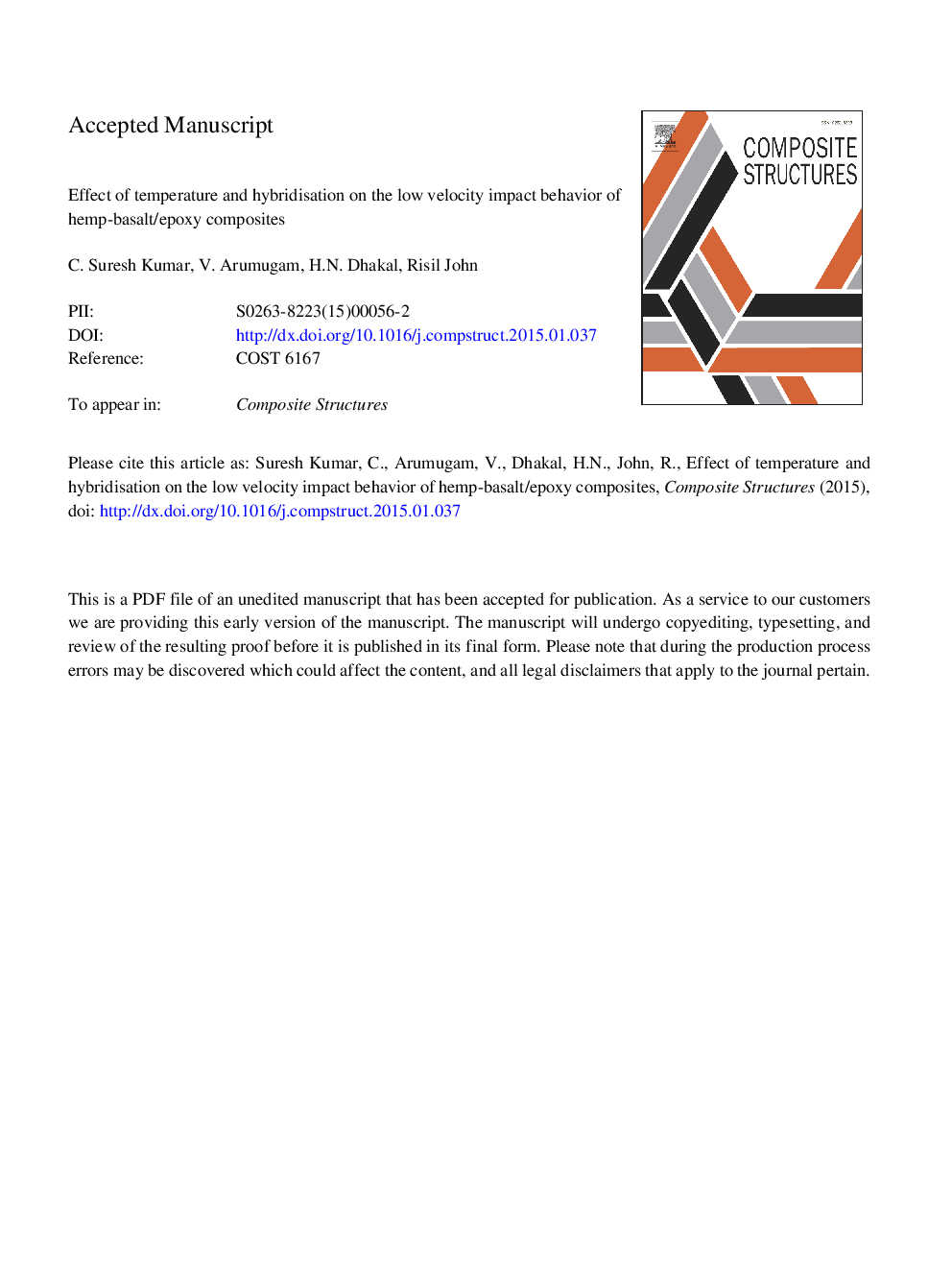| Article ID | Journal | Published Year | Pages | File Type |
|---|---|---|---|---|
| 6707021 | Composite Structures | 2015 | 23 Pages |
Abstract
This work focuses on the experimental investigation of the residual flexural strength of hemp/epoxy, basalt/epoxy and hybrid (hemp-basalt)/epoxy composite laminates subjected to low velocity impact damage at different temperatures. These specimens were subjected to a low velocity impact of 1.5 m/s with an incident impact energy of 2.17 J using an instrumented drop weight impact tester at three different temperatures of 30 °C, 50 °C and 65 °C. The residual flexural strength of the post impacted specimens were measured by the conduction of three point bending test in a 100 kN universal testing machine with acoustic emission monitoring. The effects of temperature and basalt fiber hybridisation on the damage initiation, propagation and onset of failure were investigated using the magnitude of AE cumulative counts at different stages of loading. The results show a reduction in impact strength and residual flexural strength after impact at elevated temperatures. Lower impact resistance shown in the impact test results for all three types of composites at elevated temperatures indicate the effect of temperature which leads to inferior impact properties. It was evidenced from the impact and dynamic mechanical analysis (DMA) carried out on the composites that hybrid composites have better residual flexural strength and impact properties compared to non-hybrid composites.
Keywords
Related Topics
Physical Sciences and Engineering
Engineering
Civil and Structural Engineering
Authors
C. Suresh Kumar, V. Arumugam, H.N. Dhakal, Risil John,
